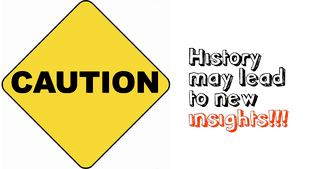Football emerged in Ireland in
the 17th century. A ball game resembling mob football was widely played
in the Dublin area.
In the 18th century football was played by most of England's leading
public schools. There is documentary evidence that football was played
at Eton as early as 1747. Westminster started two years later. Harrow,
Shrewsbury, Winchester and Charterhouse had all taken up football by the
1750s.
In 1848 a meeting took place at Cambridge University to lay down the
rules of football. As Philip Gibbons points out in Association Football
in Victorian England (2001): "The varying rules of the game meant that
the public schools were unable to compete against each other." Teachers
representing Shrewsbury, Eton, Harrow, Rugby, Marlborough and
Westminster, produced what became known as the Cambridge Rules. One
participant explained what happened: "I cleared the tables and provided
pens and paper... Every man brought a copy of his school rules, or knew
them by heart, and our progress in framing new rules was slow."
It was eventually decided that goals would be awarded for balls kicked
between the flag posts (uprights) and under the string (crossbar). All
players were allowed to catch the ball direct from the foot, provided
the catcher kicked it immediately. However, they were forbidden to catch
the ball and run with it. Only the goalkeeper was allowed to hold the
ball. He could also punch it from anywhere in his own half. Goal kicks
and throw-ins took place when the ball went out of play. It was
specified that throw-ins were taken with one hand only. It was also
decided that players in the same team should wear the same color cap
(red and dark blue).
Irish boys who attended England's public schools brought codified
football to Ireland. Football became very popular in the top Irish
universities.
In 1872 Charles W. Alcock, the secretary of the Football Association,
arranged the first international football game to be played. Alcock took
a team of English born players to play against a team from Scotland. The
match, played in Glasgow, ended in a 0-0 draw. The main objective was to
publicize the game of football in Scotland. It had the desired effect
and the following year the Scottish Football Association was formed and
the England-Scotland match became an annual fixture.
|
In 1878 John M. McAlery, saw a game of football while he was on
honeymoon in Scotland. Later that year he arranged for two Scottish
teams, Queen's Park and Caledonians, to travel to Ireland to take part
in an exhibition match to publicise the game. The following year,
McAlery formed Ireland's first football club, Cliftonville.
The Irish Football Association was formed in 1880. They played their
first game in 1882 when they were beaten 13-0 by England. The following
year the British International Championship was established. Each
country met the other three over the course of the season. Scotland won
the initial championship by beating England (1-0), Wales (4-1) and
Ireland (5-0). The following season Scotland scored 8 against both Wales
and Ireland. However, they could only manage a 1-1 draw against England.
Over the next few years, Scotland and England dominated the British
International Championship. It was not until Ireland was involved in a
three-way tie in 1902-03 that there were signs of a shift in power.
Wales won the title in 1906-07 and Ireland did it in 1913-14.
|

